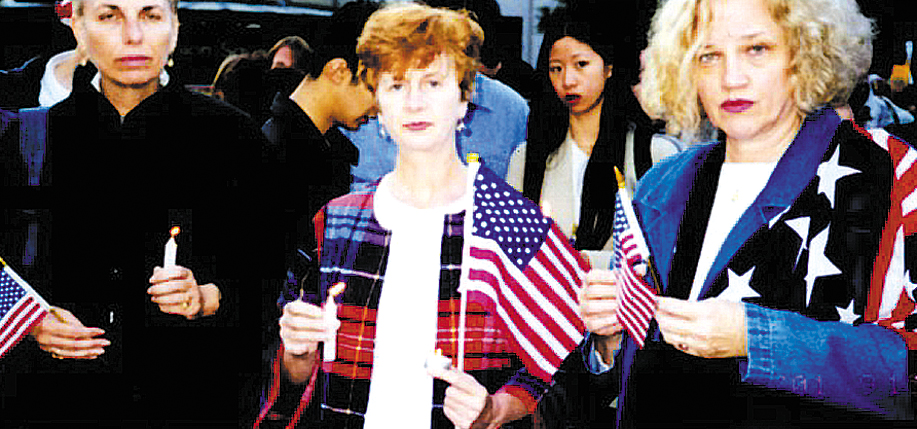Everyone knows where they were on Tuesday, September 11, 2001, when the horrific news broke. I was in my classroom on West 89th Street between Columbus and Amsterdam Avenues in New York City. I was writing out a present/past tense chart, a review of verbs for my English language learners with whom I would be working later in the day. That chart, which for five days lay unfinished under a table where it fell, was a terrible reminder that time is something we cannot be sure of.
On Wednesday, school was closed. The images on the television screen made normal everyday activities such as eating and sleeping impossible. On Thursday, I went about in a daze as I tried to answer questions from teens learning English as a second language.
“Why they did that to America, Miss?”
“America gonna get them and shoot them?” I said I did not know. I said we would have a ceremony the following day, Friday, to help us send positive thoughts to the families who are sad, to help the firefighters and other workers who are trying to find lost people.
“What’s positive thoughts, Miss?”
I wished I was not in a public school. I wanted to pray with them. A moment of silence with second-language learners would not be very productive.
On Friday, they tried to express “good wishes” as they made cards to display on a bulletin board.
“I wish the people not ded.”
“I wish the fire go way.”
“I wish the police kech the bad guys.”
I tried to express the meaning of the word “United” as I used the American flag and a globe to try and explain about the people all over the world who were going to light candles that night. I showed them a candle. I tried to teach the words of “The Star Spangled Banner.” I did too much in one ceremony and felt sure they could tell, yet on some level understood, that I was not confident about anything I said or did that day.
That night, I went with two friends, Peggy and Pat, to the candle-light ceremony at Union Square to pray, be with the living, and remember the dead.
A large crowd, various ages and nationalities, circled a cement stage, writing messages with chalk provided. Many wandered around reading messages written by others. Flowers and photos were placed at various stations where lighted candles created a shrine. The word “Freedom” was visible in many languages on the cement. I added “Saoirse” to that list. The word “Peace” was also prominent, and to this, I added the word “Síochán.” A small gift ran to get a piece of pink chalk. She knelt down and wrote: “I love the…” After the three dots, she drew a picture of the Twin Towers. I talked with an Asian woman whose sister narrowly escaped Tower One.
“She too scared to come out of apartment now. She just want to stay in bed. She think she still running.”
People tried to cheer each other up by singing “New York, New York,” and chanting anti-war slogans. Then the crowd broke into a thunderous applause as if to say: “We will not be beaten down by terrorists!” I felt somewhat dazed and was only able to join in when a choir sang “Someone’s crying, Lord. Kumbya.” Two young people (obviously dancers), moved through the crowd on stilts. The two, exactly the same size, wore black leotards and face masks. The windows painted on their thin bodies and the grace with which they fell off their stilts was not soothing to my spirit. It was as if they and I were in different worlds and I was looking at them through a cloud of smoke.
I write this a week after the attack. Across the Hudson River, there is still a cloud that rises like an ugly gray monster out of a huge gaping cavity. Like my verb chart, the view and smell remind me that life as we knew it here will never be the same. Since September 12, a row of lighted candles flicker at my feet on Boulevard East, where I join with people who gather at night to stare across the river. We stand reverently in silence as at a wake, all facing the New York skyline with faces numb, bodies frozen and blank eyes following the smoke that won’t stop. I wait for the wind to change. I think if only I didn’t smell the smoke, I could avoid looking at the empty hole and pretend.
The numbness makes it difficult to put my feelings and thoughts into words. The Mass of Supplication at St. Patrick’s Cathedral helped me to cry. The television coverage no longer uses the caption: “Attack on America.” The current rubric reads: “America Rising.” Because we live in “The Home of the Brave.” We will get through this. ♦


Leave a Reply